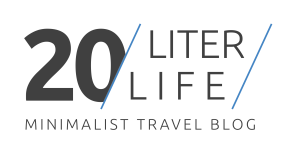Franklin’s approach to time management is slightly different:
Productivity Matrix: Over the last year I’ve been developing what I nerdily refer to as my “Productivity Matrix.” It’s simple and only requires a notebook and a pen. I’ve created a system by which I track my daily small goals, an overview of my projects, as well as a to-do list. My daily goals are: stretch, meditate, write in the morning, Duo Lingo / Pimsleur (language learning – about 45 minutes per day combined), exercise, read, and write. I’ll only give myself a check mark for things like reading and writing if I spend at least about 30 minutes doing it. Typically I won’t do every single one of these things every single day, but the goal is to see as many check marks across the board at the end of the week. Similarly, my project overview on top allows me to see, at a glance, how well I managed to “touch” on each of my larger scale work that is ongoing. Again, I consider 30 focused minutes, or accomplishing an important task, to be worth giving myself a check for any of these. At the bottom is a simple to-do list to keep track of things that I want/need to get done once. Some of these to-do items carry over for weeks and weeks, but if it is something that I don’t want to forget, it’s useful to keep rolling it through.
Time Tracking: It’s surprising how much you can actually get done in a day. It seems to me that the small amount of time it takes to track your use of time each day pays off with significantly increased productivity. It doesn’t make all that much logical sense, but there is something psychologically satisfying and motivating about visualizing and reviewing all that you’ve accomplished throughout the course of an hour or afternoon or week. It helps keep you accountable and can be as simple as just jotting down what you did each hour of the day. I usually do this on the opposite page of my Productivity Matrix in my notebook.
Using a Calendar: Google Calendar makes it so that you have no excuse to not use a calendar (I’m assuming you use the internet). I like using a web-based calendar because I can access it from anywhere; it’s available on my phone, computer, the library, my Kindle Keyboard 3G, wherever there is an internet connection. Using a calendar is such a simple concept, so I feel silly recommending it, but it’s worth mentioning because I used to not use my calendar much at all. It’s insane how much more I get done in a week when I diligently fill my calendar and strictly adhere to it. I think being able to visualize my time is really helpful and positive. It’s important to not only use the calendar for obligations like work or meetings, but rather schedule everything that you can that you want to spend time doing. I put “reading” blocks, “study” blocks, “writing” blocks, etc. A bonus is that you will have a much better “social memory” so to speak; you won’t forget engagements, double book people, or (hopefully) be late to anything.
Setting Time Boulders: This one relates to using a calendar. Scheduling big blocks of time to focus on a certain task or project can be really helpful in using your time more effectively. If I say “I should write more this week” I’m leaving a lot of space for procrastination, neglect, and excuses. But if I put two 3 hour blocks on my calendar that say “writing” I am more likely to see that, sit down, eliminate distractions, and write for the better part of that 3 hours. Putting in these large blocks, or boulders, of time into my schedule helps me log more hours into important activities. It’s more premeditated and therefor allows for less last-minute decision making that may excuse what you actually want to spend your time doing.
Stop Multitasking: From what I’ve read and experienced, it seems that humans can’t really multi-task very well at all. We can do different things at the same time, but it will only result in a watered down efficiency and effectiveness of the activities that we are attempting to focus on. Even during casual activities like reading, I find my comprehension and memory is increased significantly if I keep my phone out of reach. Making a conscious effort to eliminate distractions is actually kind of fun, and besides allowing you to focus on one task, I think the placebo of that mentality also improves my work ethic.
Filling the Void: Figuring out ways to work productive activities into already “filled” time slots is a fantastic way to get more out of your day. For example, on my commute to work, whether I ride my bike or drive, I have made a habit of listening to a pimsleur audio lesson. From the moment I walk out of my house to the moment I clock in for work it’s about 30 minutes, so it’s a perfect time slot to get my language lesson in for the day. I can’t cut that 30 minutes out of my day and I can’t read or write or do any other work during that period of time, so it’s a great double use of the time to have some good audio to listen to. Moreover, riding my bike to work also gets some exercise in for the day – another one of my goals. So now I’m getting to work, exercising, and doing a language lesson: 3 birds with one stone. Other examples are: stretching while I’m at work, listening to podcasts whenever I walk/wait anywhere, reading on public transportation, etc.
Maintaining Health: This may seem only tangentially related, but paying attention to your health is invaluable to utilizing your time effectively. To be sure, in the long run it is the only practice that will actually give you more time to work with in on the whole. Getting a proper amount of sleep and maintaining a healthy diet/lifestyle will without a doubt increase your efficiency and productivity over the long term. I’m no nutritionist, but if you’re looking for my dietary advice in a sentence: eat a lot more vegetables, nuts, seeds, fruit, legumes, and maybe some fish / high quality animal products, while drinking a lot of water.


